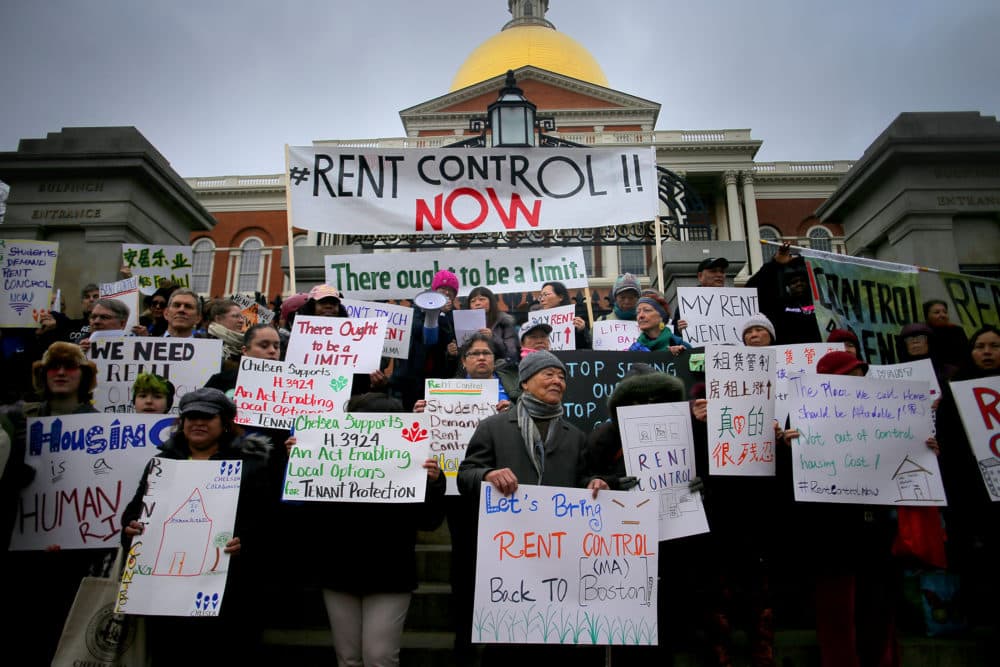Advertisement
Rent control supporters, opponents take fight to Beacon Hill

Massachusetts voters narrowly approved ending rent control for the entire state in 1994. But in a seven hour hearing on Beacon Hill on Tuesday, advocates said it's a different world now — and it's time to bring back limits to rent hikes.
One of the bills that would end the statewide rent control ban comes from state Rep. Dave Rodgers, of Cambridge. Rodgers said the state’s recent economic growth has bifurcated the economy between those who can and can’t afford to live here.
"With biotech and high tech and so many companies spinning out of Harvard and MIT ... that's led to this boom in housing wealth," Rodgers said. "But it's left so many people behind, and it's truly at crisis levels."
Supporters pointed out that when rent control was outlawed, three communities that actually had rent control — Boston, Cambridge, and Brookline — voted to keep it.
Rodgers' bill, and a separate bill from Reps. Mike Connolly and Nika Elugardo, would let municipalities seek their own forms of rent stabilization. They could also establish just cause eviction ordinances, where landlords could only evict for specific reasons, including failure to pay rent or using an apartment for illegal purposes.
But opponents say tying the hands of landlords and curtailing rents would only worsen the housing crisis. Paula Munger, of the National Apartment Association, was one of a handful of rent control opponents who spoke at Tuesday's virtual hearing.
"It destabilizes the rental market by driving away investment in new construction, ultimately decreasing affordability," Munger said.
Under the proposals, local officials would determine how much rents could be increased annually: Rodger's bill sets a maximum limit of 5%, while the Connolly/Elugardo bill leaves that to each city and town.
Munger said her organization analyzed the potential impact of a 3% rent hike limit. She said, in Boston, that would cut into the supply of new housing and reduce property tax revenue by $2 million a year.
“Across Massachusetts, it would impact both future supply as well as existing units that are potentially lost due to the infeasibility of making repairs and upgrades," Munger said.
Advertisement
It's unclear whether there's enough support among lawmakers to pass the bill, or whether it will emerge from the joint housing committee. And Gov. Charlie Baker has said he thinks rent control is unfair, indicating supporters could need enough votes to override a veto.
But Boston Mayor Michelle Wu ran on a promise to bring back rent control to the city. Before the hearing, Wu told a press conference organized by the housing nonprofit City Life/Vida Urbana that she supports lifting the ban statewide.
But Wu said the city will be busy in the meantime with other housing policies, and pledged to have a local rent control bill before lawmakers by the next legislative session.
This segment aired on January 12, 2022.
